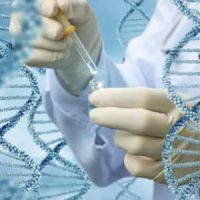Does DNA Always Result In A Guilty Verdict In A Criminal Case?

In a criminal case, the prosecution has the duty to prove beyond a reasonable doubt that the defendant is guilty of the alleged crimes they were charged with. As a result, it is essential that the prosecution not only can make persuasive arguments about the defendant’s guilt but also back those claims up with sufficient evidence to secure a conviction. One of the most influential pieces of evidence the prosecution may have on their side is DNA.
If you were charged with a crime in Florida, the Orlando criminal defense lawyers at Joshi Law Firm, PA, can assist you. The legal team at Joshi Law Firm, PA, knows how to tackle the most complicated criminal cases to benefit those that are accused of wrongdoing. And, even if the prosecution has DNA evidence, this does not mean that a guilty conviction is a given and will automatically happen. There are ways to overcome DNA evidence, including challenging its admissibility in court.
DNA As Evidence in Criminal Cases
All people have their own unique DNA or deoxyribonucleic acid. DNA runs throughout a person’s body and can be found in the skin, hair, nails, blood, etc. When an investigator obtains a sample of DNA, it is vital they handle it properly. This includes not only how they store their DNA sample but also how they test and analyze it. Mistakes with any of these actions can make the DNA sample questionable and may be grounds to have it excluded as evidence in a criminal case. The American Bar Association put together standards to follow so that when DNA is collected, it is done so in a way that preserves individual rights and protects due process.
Not only is the prosecution responsible for handling DNA responsibly and analyzing it correctly, but they also likely need additional evidence to support their claims. This is because usually, DNA by itself without supporting information is generally not enough to convict a defendant of a crime.
If handled properly and within established guidelines, DNA evidence can be incredibly valuable to the prosecution’s case. However, there can be issues during any step of the process. Bad sampling that is contaminated, inaccurate lab analysis, lack of substantial supporting evidence, and more may all be reasons why an attorney can object to using DNA evidence or show that it is unreliable.
Speak to a Florida Criminal Defense Attorney Today
Knowing that the prosecution has DNA evidence to use against you in your criminal case can make you feel like you have an uphill battle to fight with little chance of success. But this may not necessarily be the case. The DNA evidence may not be strong enough to secure a conviction, or it could be thrown out and not allowed to be used against you as evidence. An experienced Orlando criminal defense attorney at Joshi Law Firm, PA, will know how to combat the use of DNA evidence by the prosecution or, to use DNA evidence to your advantage.
Call Joshi Law Firm, PA, today to schedule a free initial consultation to discuss your criminal case at (407) 661-1109.

